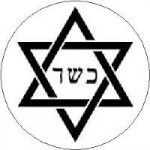#105 Shmirat HaGuf: Caring for Your Body
#105 Shmirat HaGuf: Caring for Your Body
 In this lesson you will learn about the importance that Judaism places on caring for the physical body. Judaism believes that the body is the carrier for the Eternal Soul and we must take care of the container (our bodies). On a practical level, this means having a healthy diet, eating well, sleeping well, and having quality exercise. This is why Judaism places an importance on eating kosher, resting on the sabbath day, and caring for your physical body. In this lesson, you will learn:
In this lesson you will learn about the importance that Judaism places on caring for the physical body. Judaism believes that the body is the carrier for the Eternal Soul and we must take care of the container (our bodies). On a practical level, this means having a healthy diet, eating well, sleeping well, and having quality exercise. This is why Judaism places an importance on eating kosher, resting on the sabbath day, and caring for your physical body. In this lesson, you will learn:
- the “why” and “what” of Kashrut
- what Judaism teaches about tatoos and other gashes
- healing the sick and the importance of saving a life
#1 KNOW THIS: Useful Statements
Shmirat Haguf is the Hebrew phrase for “Caring for the body.” Shmirat means “to care” or “to protect” and Haguf is “the body.”
*The Eternal will make your bones strong. – Isaiah 58:11
*If you find honey, eat only what you need. Otherwise, you will overdue it, and throw it up – Proverbs 25:16
*Rav said to his son Hiyya, “Don’t get into the habit of taking drugs, don’t leap over a sewer, don’t have your teeth pulled – Pesachim 113a
#2. STUDY THIS: The Kosher Basics
Kashrut are the laws of food and diet in Judaism. You have heard people say, “I cannot eat that, it’s not Kosher and I am Jewish.” Or, you may have seen people check food labels to see if the food is Kosher. The value of eating Kosher is to be mindful of what we put into our bodies. The teaching is that Judaism believes that food is important to our health.
Two Kosher basics:
1. Eat milk products and meat products separately
2. Shrimp, lobster, pork are not kosher foods
#3. WATCH.
#4 READ: Caring for your physical body – Jews on Tatoos and body piercing
“You shall not make gashes in your flesh for the dead, or incise any marks on yourselves.” – Leviticus 19:28
“Aaron said to them, “take off the gold rings that are on the ears of your wives.” – Exodus 32:2
#5: WATCH :
#6 STUDY THIS:
“The body is the soul’s house. Therefore, shouldn’t we take care of our house so that it does not fall into ruin? – Philo
“When a person has pain, that person should visit a physician.” Baba Kama 46b
#7 RESPOND AND REACT
1. What is the Hebrew word for “caring for your body?”
2. How do you feel about tatoos and body marks?
3. What does Judaism teach about caring for the body and protecting it?
4. Are you grateful for your body? Why?
5. How do you feel about the teachings of Kosher eating?
Need some help?
We’re here for you. At any time, if you have any questions, please contact one of our teachers so we can help you.
Also, at the end of the session, remember to review your responses in your Tamid Workbook so you can get credit for this lesson. Behatzlacha (Hebrew for good luck)!
You can reach us at (646)360-0689 or connect@tamidnyc.org



